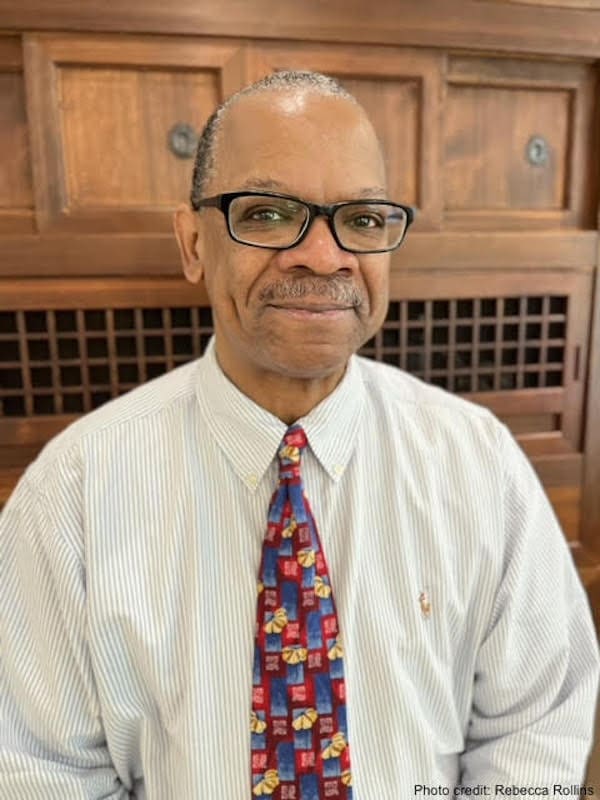
The purpose of this blog is to stimulate thought and discussion about important issues in healthcare. Opinions expressed are those of the author and do not necessarily express the views of CMDA. We encourage you to join the conversation on our website and share your experience, insight and expertise. CMDA has a rigorous and representative process in formulating official positions, which are largely limited to bioethical areas.
Abortion and App Blogs
Who’s Calling Who a Blob?
November 9, 2023
by James L. Sherley, MD, PhD
Well, there they go again: science reporters are calling human beings “blobs.” Not blobs as in the classic science fiction movie that wreaked havoc and death on unwitting victims. No, they are back to labeling innocent embryo-age human beings as mere “blobs of cells.” This Orwellian tactic deceives the public into believing that nascent human beings, rather than the unethical scientists experimenting on them, are blobs of cells.
Such was the case in a recent article by the health and medicine news outlet STAT, where science journalist Megan Molteni twice used the language of “blobs” to refer to embryonic human beings. Molteni’s casual dehumanization came as part of a report on recent technical advances in the ability to manipulate young, embryonic human beings, and proposed re-definitions of what counts as a human embryo in light of these advances. In the last few years, scientists have developed ways to manufacture human beings in the laboratory, without sperm and egg, using only stem cells such as human embryonic stem cells (ESCs) and human ESC-like cells (more about this below). Scientists can then readily manipulate and genetically engineer these bioengineered human beings, extending the unethical assault on humanity.
In another recent piece in Scientific American reporting on the same advances, science journalist Meghan Bartels refers to the nascent human beings involved in these experiments as mere “synthetic blobs.” Later in that same article, stem cell biologist Magdalena Żernicka-Goetz, commenting on her team’s recent creation of a 14-day old embryo from stem cells, confidently asserts, “It’s not an embryo—it’s an embryo-like structure.”
The last time reporters were dehumanizing people in this way was during the debates in the late 1990s and early 2000s over the ethics of human ESC research. This research involved the harvesting of human ESCs from embryonic human beings conceived by in vitro fertilization. The donated embryonic human beings were killed in the harvesting process. At that time, reporters were taking the “blob” or “clump of cells” terminology right from the scientists they interviewed. Reporters aided scientists seeking to continue human ESC research by attempting to convince the public that such unethical human experimentation held out the promise of medical advances and cures for incurable diseases. It was a deception, a “fairy tale” told to gain public acceptance. The balm for the public conscience was the false assurance that the human beings killed in this research were not fully human, so not deserving of the same rights the rest of the human family enjoys.
It has been 25 years since the first harvesting of human ESCs, and we now know that, despite many thousands of innocent human beings being killed in the research, no new medical advance or cure has resulted from all that death. Human ESC research scientists counter criticisms based on this lack of medical advances by pointing to a few clinical trials that utilize cells derived from human ESC-like cells (induced pluripotent stem cells), which are not derived from human embryos at all. Moreover, these human ESC-like cells are in fact the result of the vision and efforts of Nobel Laureate Shinya Yamanaka, who developed them expressly to provide an alternative to unethical human ESC research that involved the destruction of young human life. Yamanaka’s advance did not require knowledge gained from human ESC research, and even the ethical stem cells he developed are not used in clinical trials. Instead, more mature body cells produced from them are used for the “stem cell” therapies now under investigation.
The International Society for Stem Cell Research (ISSCR) has taken the lead in dehumanizing these bioengineered human beings and promoting experimentation on them. However, instead of ISSCR scientists directly telling reporters what to write, they have enlisted a platoon of bioethicists to draft new policies and publish reports in scientific journals with the goal of legitimizing the research in the public’s eyes. More eloquent than past human ESC scientists, these bioethicists do not themselves use such crass words as “blobs of cells,” but their deceptive sophistry is similarly dehumanizing. Their crafted terms for these living human beings include “blastoids,” “embryo models” and “stembryos,” suggesting these entities are not ethically equivalent to natural and IVF embryos. But what do you call something that looks like an embryo and functions like an embryo? An embryo.
What does it gain us if we trade the humanity of our fellows for the promise of future medical benefits? Ethical principles are often blunted when a cold utilitarian calculus takes priority over recognizing and respecting this humanity. Slavery, abortion and unethical human experimentation are all enabled by these propagandistic efforts at dehumanization.
However, the promise of future benefits in the case of unethical human experimentation is even harder to defuse. ISSCR scientists and their coterie of bioethicists promise that experimentation with bioengineered human beings could lead to treatments to prevent birth defects, the ability to produce organs needed for transplantation medicine and treatments to correct genetic diseases. But they do not admit that these potentialities come with the certain injury and death of many thousands of our fellow human beings; and this act itself poisons the quality of life for us all. So, who will be calling who a blob in the next 25 years?

